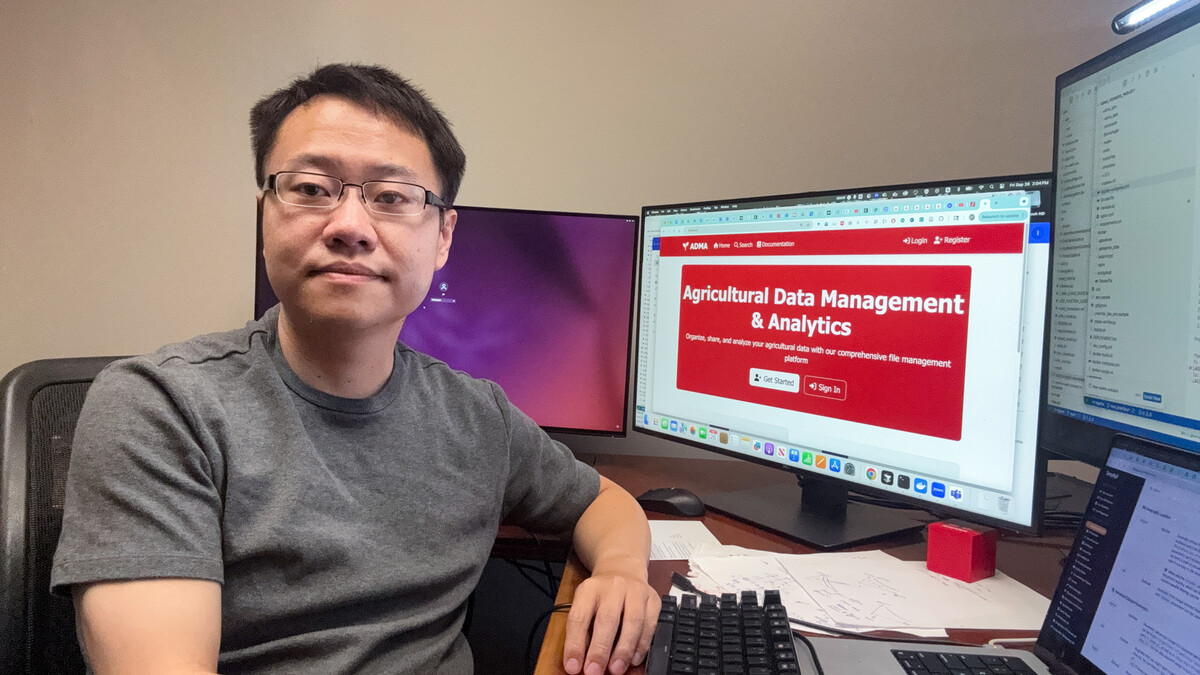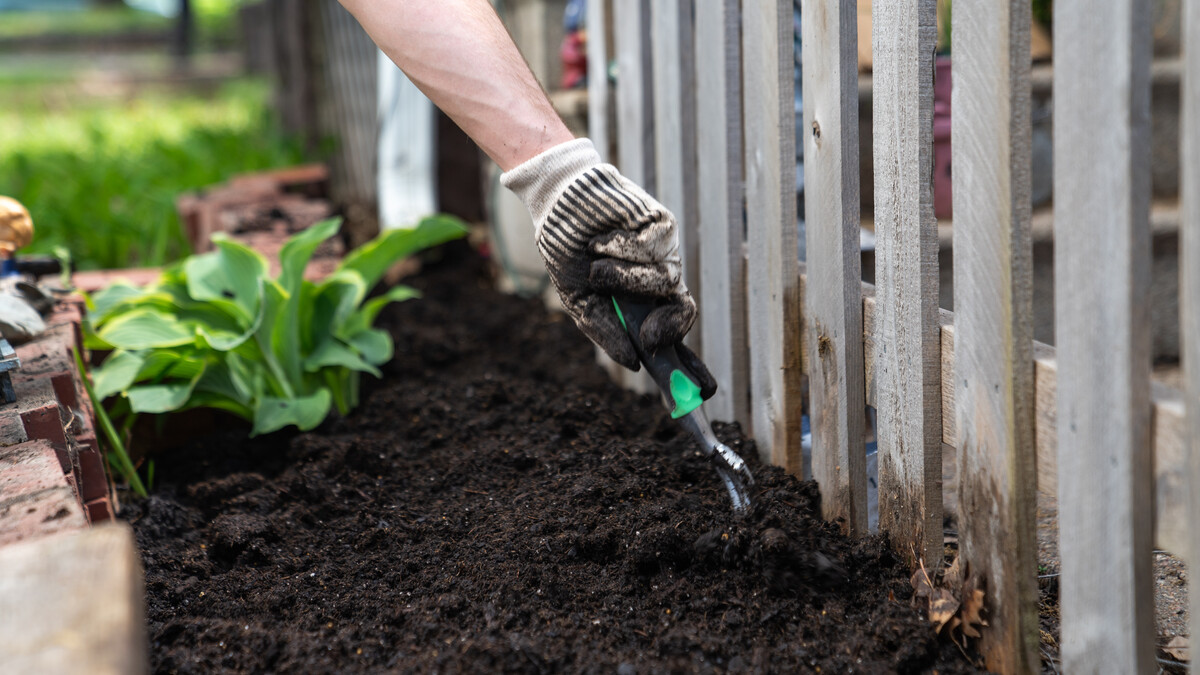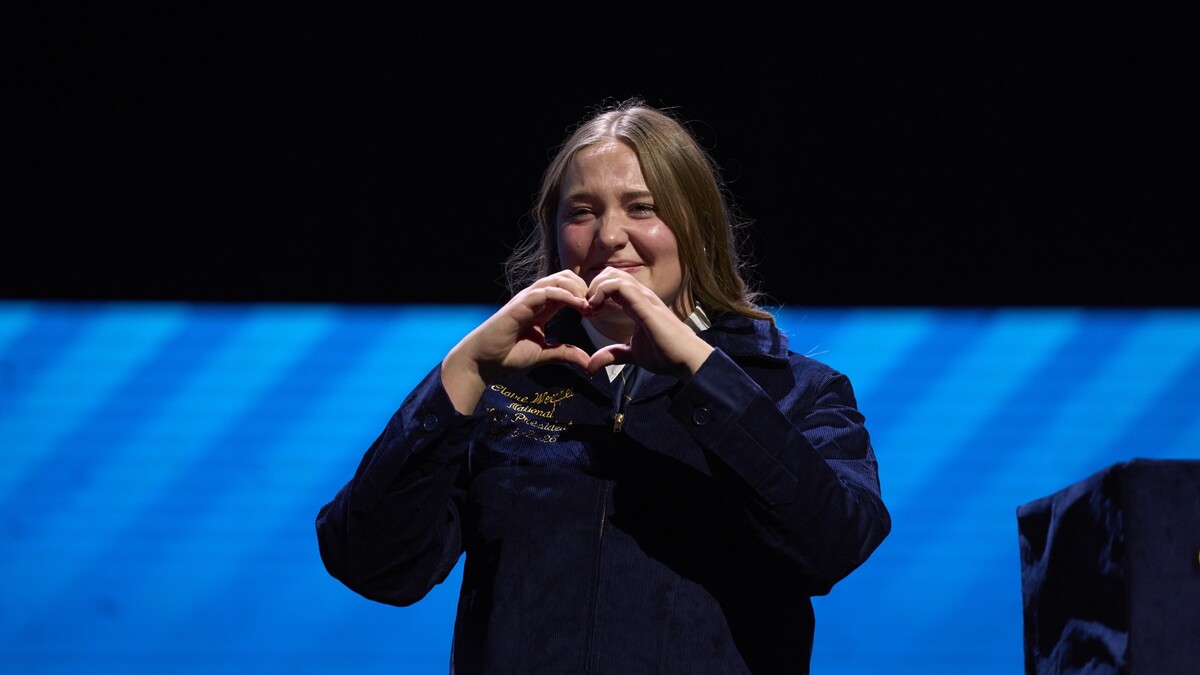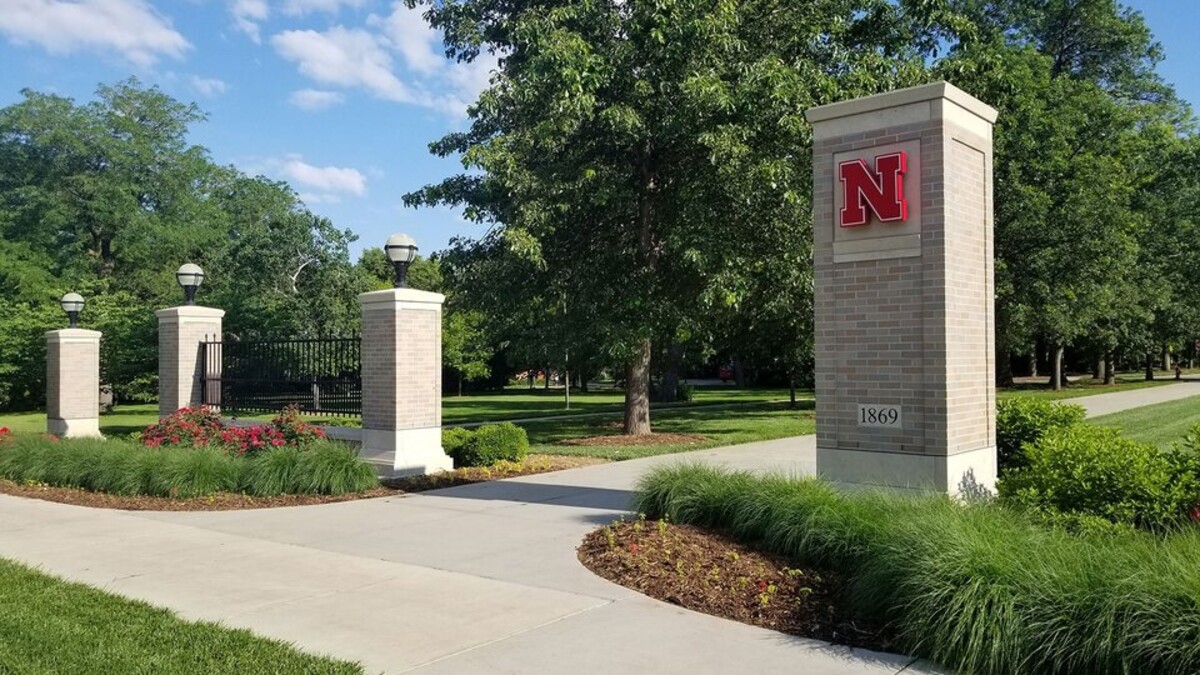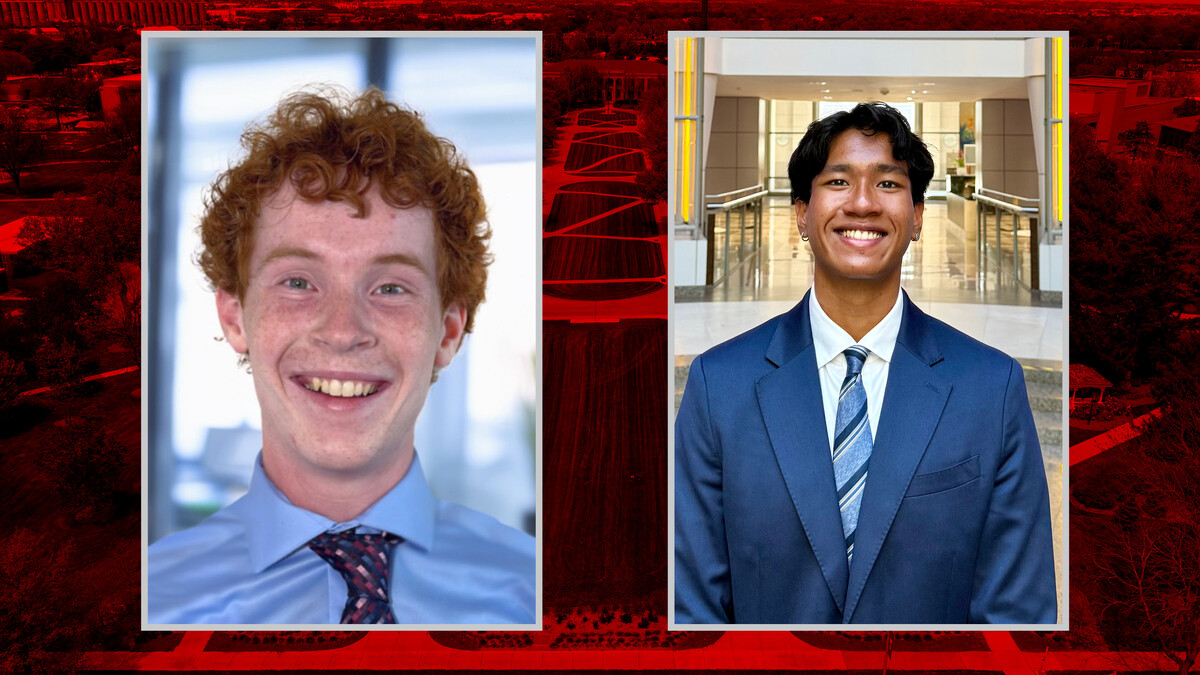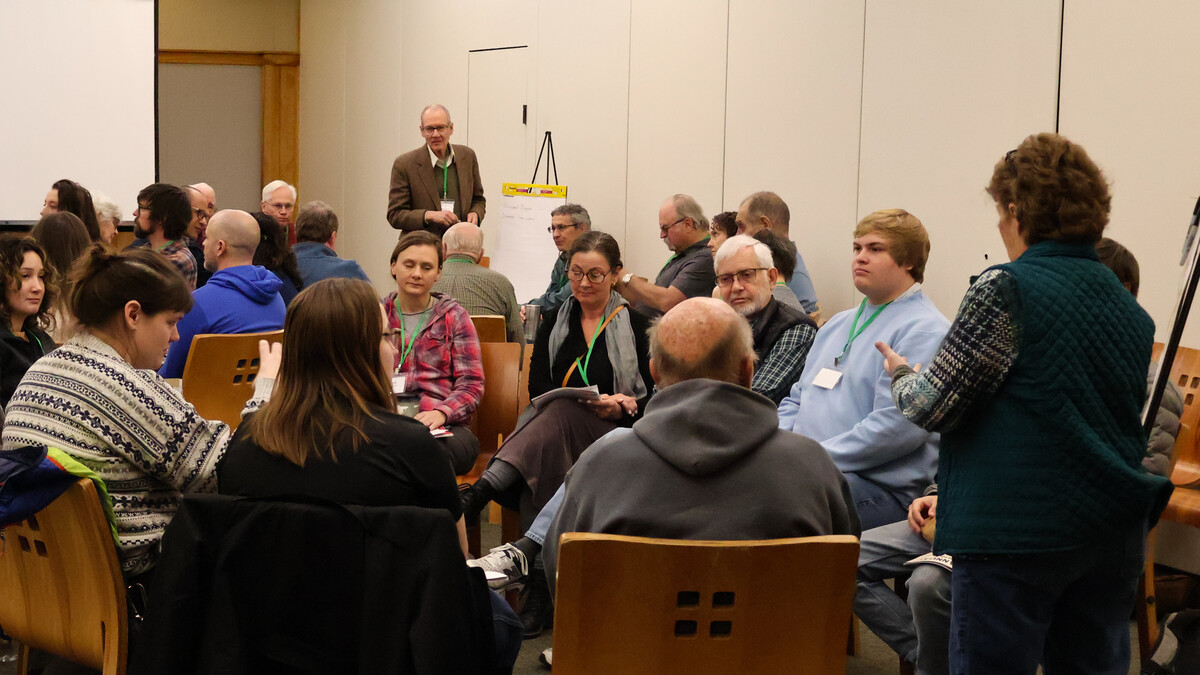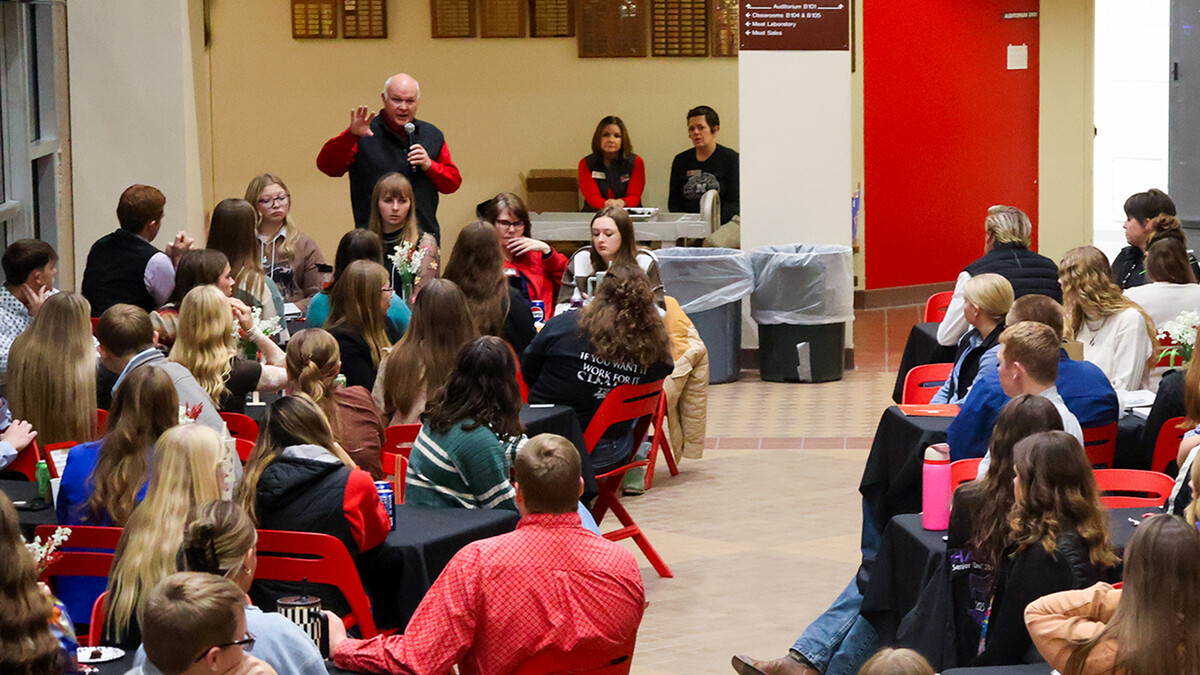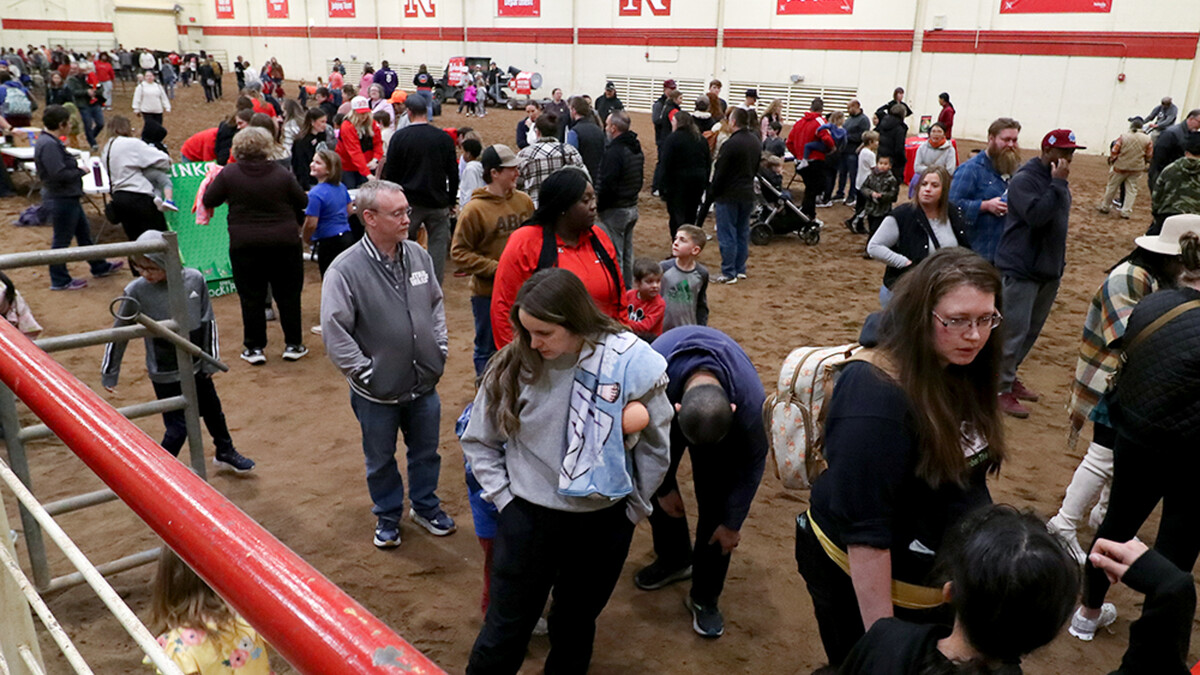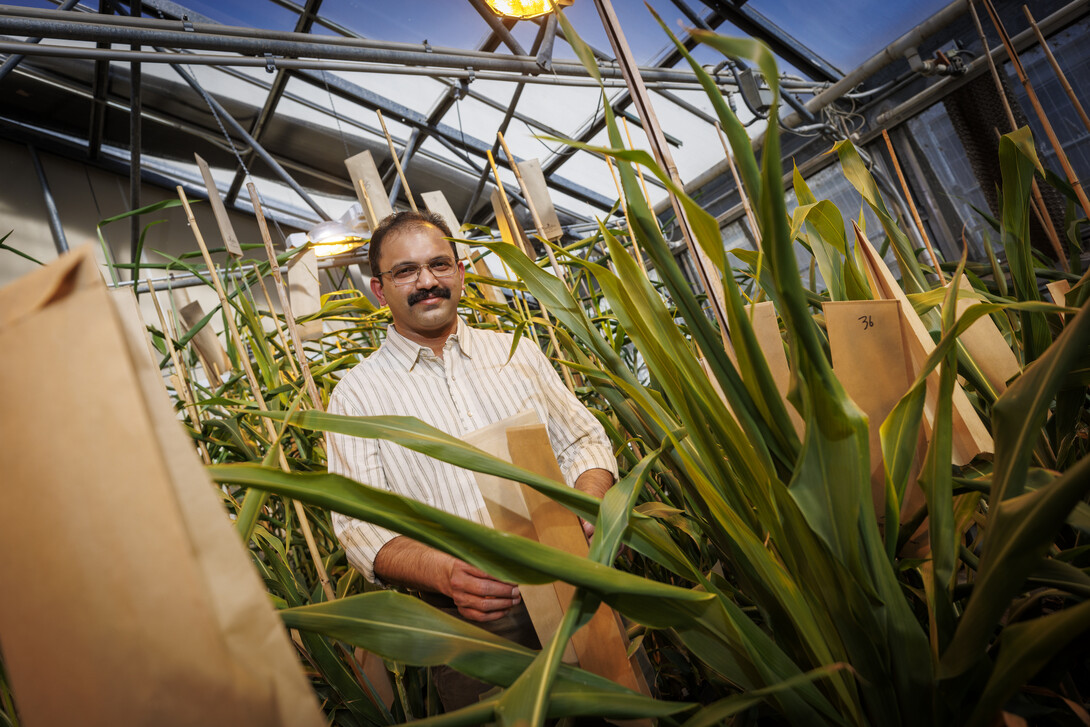
Lincoln, Neb. —University of Nebraska-Lincoln entomologist Joe Louis has been named the Eberhard Professor of Agricultural Entomology in recognition of his innovative research on plant resistance to insect pests as well as for his instructional outreach, including to underrepresented student populations.
Louis, who joined the UNL faculty in 2013, has received $4.55 million in grant funding, including a $1.5 million grant from the National Science Foundation Faculty Early Career Development Program (CAREER) Program. A contributor to nearly 50 academic papers, he oversees IANR’s Plant-Insect Interactions Lab, which identifies natural resistance mechanisms to bolster plant defenses against insect assault.
Strengthening plant self-defense has major long-term potential to reduce insecticide use and promote environmental sustainability, Louis says. He and his colleagues are using a variety of innovative interdisciplinary collaborations to fill in the knowledge gaps in this area of science. Those collaborations, he notes, require “molecular, biochemical, behavioral and ecological studies.”
The $1.5 million grant from the National Science Foundation is funding research into defense responses by sorghum against aphid attacks. Because aphids are so tiny, the project requires great sophistication, as researchers attach a wire to individual insects. The delicate electrical monitoring reveals in real time what plant tissues the aphids have penetrated with their mouthparts and their feeding behaviors within those tissues.
“If it is a resistant plant, we can see from the electrophysiological readings, somewhat similar to EKG readings, that they cannot feed well on those plants,” Louis says. Long term, the research has potential to develop methods for strengthening sorghum self-protection.
The scope for discovery is great in this area of science. One area of study involves the mechanisms by which insect effectors/elicitors, such as saliva and frass, alter plant defense responses. Much remains to be understood about the specific conditions that activate plant defense mechanisms. “Our main aim,” Louis says, “is to look at those natural defensive ways we can identify and see if we can introduce those into those plants that don't have that much of those innate defenses."
One focus of research is lignin, a compound in a plant’s secondary cell walls. Lignin provides resistance to various insects and pathogens. So, Louis says, research can explore ways to “improve those compounds in those plants that don't have that much lignin, to enhance the resistance.”
Results from these projects, Louis says, “have global benefits to science and society at large. They are helping to clarify the nature of the ongoing and important coevolutionary arms race between plants and herbivorous insects, for both sucking and chewing insects, that shapes ecosystems and influences the success of establishment for invasive pests. Understanding the innate plant immune mechanisms that confer resistance to agricultural pests can allow us to simultaneously reduce our dependence on toxic pesticides and enhance overall food security.”
Louis received his B.S. in agriculture from Kerala Agricultural University in Thrissur, India. His central interest in those years was plant biology, but when studying for his master’s degree at Kansas State University, he participated in a program on plant-insect interactions, and that has spurred his ongoing desire to pursue the topic in depth. After receiving an M.S. in entomology from Kansas State, he earned a Ph.D. in molecular biology from the University of North Texas. He did postdoctoral work in plant molecular biology and entomology at Penn State University.
He served in 2018 as the chair of the Plant-Insect Ecosystems Awards Committee for the Entomological Society of America (ESA), chair as the Program Committee for the 2018 North Central Branch-ESA meeting, and has been associate editor/subject editor for several plant-microbe/insect interaction journals.
Louis pursues a variety of educational outreach efforts. He works with Lincoln teachers to boost student awareness of plant’s interaction with insects . As part of his outreach to underrepresented students, he has developed a “Visits by Scientist” program in collaboration with Culler Middle School, one of the most diverse public schools in Lincoln. He also trains undergraduate students from the University of Texas Rio Grande Valley, most of whose students are Hispanic. That program involves a 10-week annual residential summer research experience for students, who work on a specific project in plant stress physiology.
Such outreach is crucial in expanding opportunity and boosting the training of the next generation of scientists, Louis says: “That's very critical for me. We need to serve not just the students here but also students who are really underrepresented and don't have that opportunity otherwise."
Louis says, “kudos also goes to the present and past members of the lab for their great work, excellent support given by collaborators, mentors, and colleagues, and Eberhard family for recognizing this work and making this professorship possible.”
Geitner Simmons |IANR Communications
